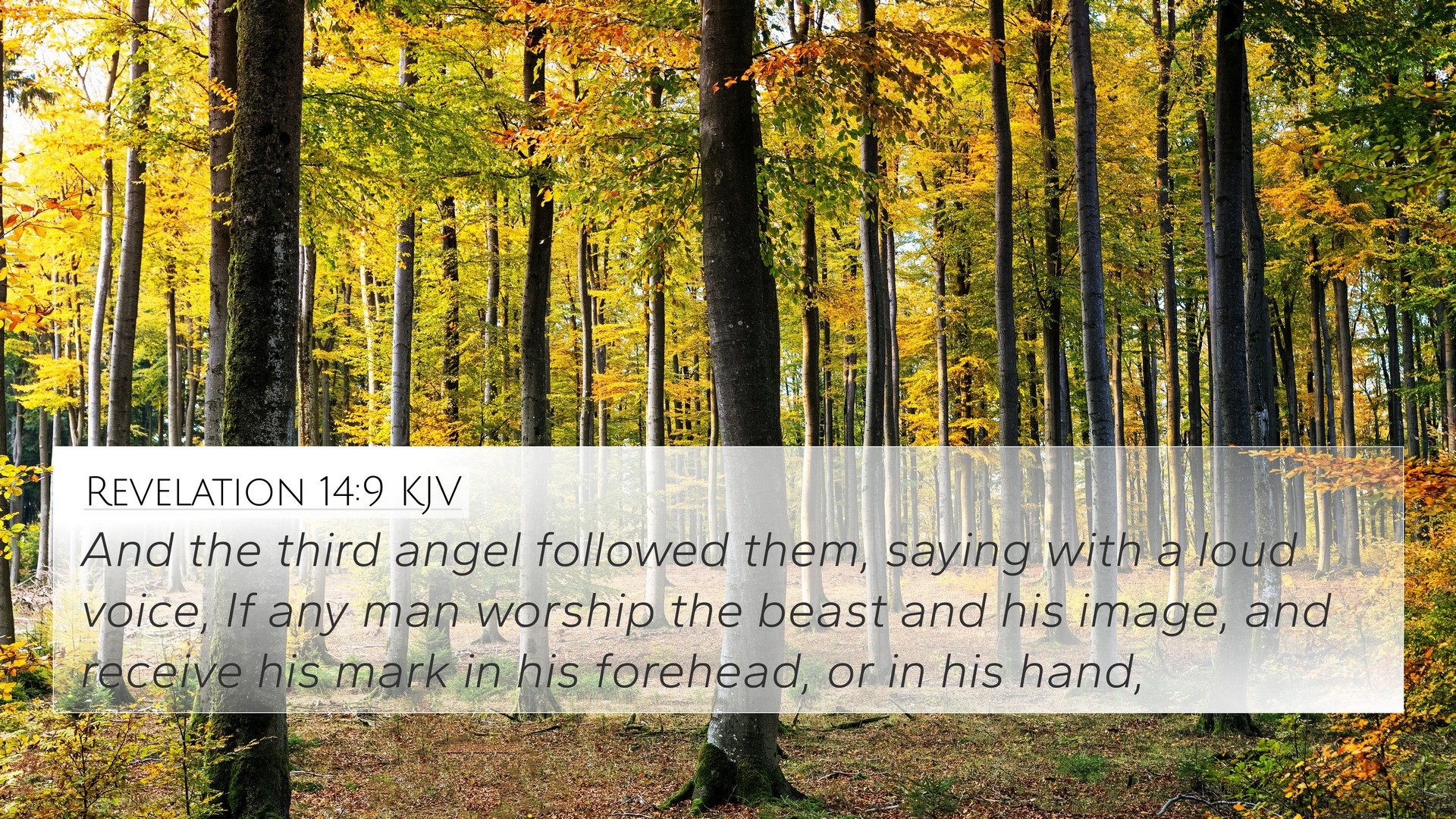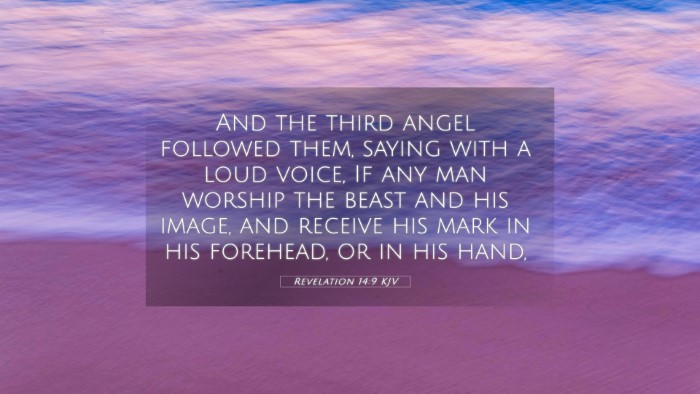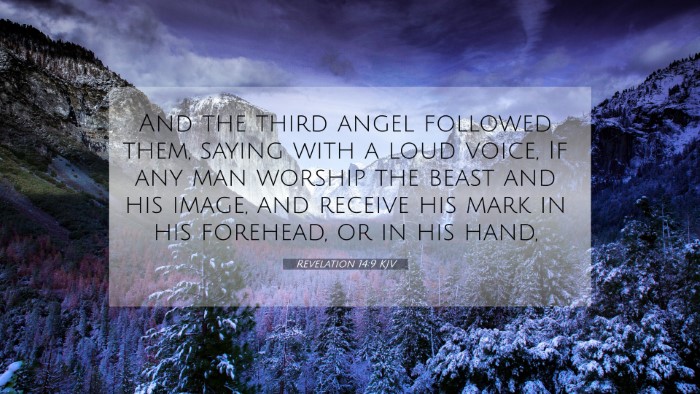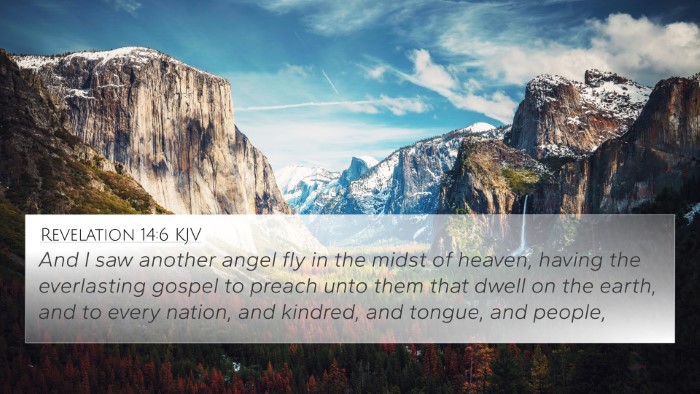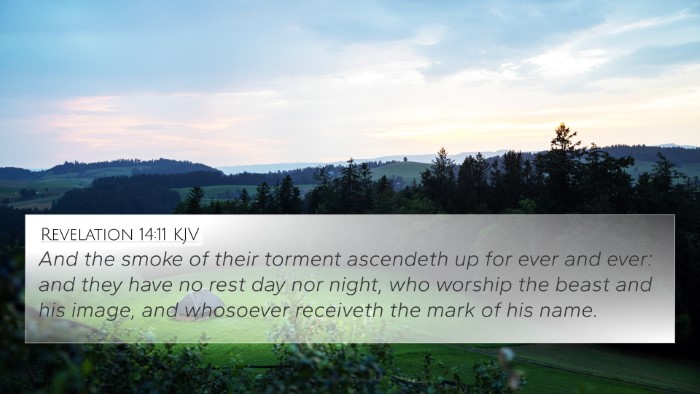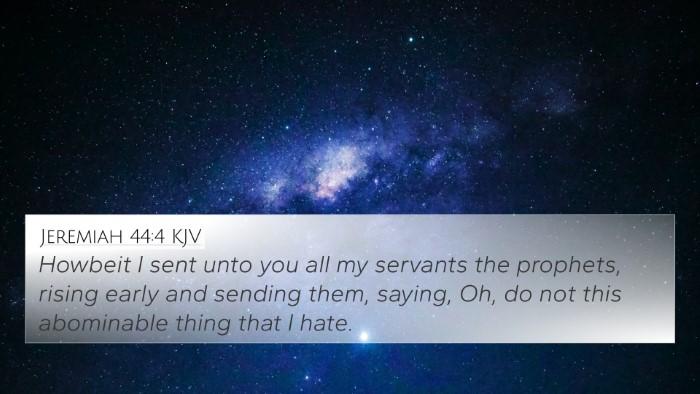Bible Verse Meaning: Revelation 14:9
Verse: Revelation 14:9 - "And the third angel followed them, saying with a loud voice, If any man worship the beast and his image, and receive his mark in his forehead, or in his hand,"
This verse provides significant insight into the consequences of worshiping the beast and taking the mark, emphasizing the importance of allegiance to God versus allegiance to worldly powers.
Summary of Insights
- Warning Against False Worship: The angel's message serves as a stark warning. Worshiping the beast represents a profound betrayal of faith.
- Ultimate Authority of God: This verse underscores that ultimate authority lies not in earthly powers but in God's commandments.
- Consequences of Disobedience: The act of receiving the mark symbolizes a choice that leads to dire consequences, reflecting the themes of judgment found throughout Scripture.
Interpretations from Commentaries
Matthew Henry: Henry emphasizes the serious implications of choosing to worship the beast. He points out that taking the mark signifies a willful rejection of God's sovereignty and command. This choice leads to God's judgment and separation from Him.
Albert Barnes: Barnes interprets this passage as a clear declaration of the fate that awaits those who worship the beast. He draws connections to the idea that true worship must be directed solely towards God, highlighting the internal conflict faced by believers during trials.
Adam Clarke: Clarke provides an analysis of the historical context of this verse. He asserts that the 'beast' symbolizes oppressive governmental or religious powers that lure individuals away from true faith. The mark is perceived as an outward sign of allegiance to these entities.
Cross-References
This verse is interlinked with several other biblical passages that enhance its understanding:
- Revelation 13:16-17: Discusses the requirement of taking the mark as a sign of allegiance to the beast.
- 2 Thessalonians 2:4: Refers to the man of sin who opposes and exalts himself above all that is called God.
- Matthew 24:24: Warns of false prophets and experiences, underlining the necessity of discernment in worship.
- Revelation 20:4: Promises rewards for those who did not worship the beast.
- Exodus 20:3-6: The First Commandment speaks against idolatry, connecting the theme of exclusivity in worship to God.
- Isaiah 42:8: Affirms that God will not share His glory, emphasizing the importance of worshiping the One True God.
- Romans 6:16: Discusses the concept of servitude, illustrating the contrast between serving God versus serving sin.
Thematic Connections
This verse is part of a larger dialogue within Scripture concerning:
- The Nature of True Worship: Connecting with passages such as John 4:24 that emphasizes worshiping God in spirit and truth.
- Divine Judgment: Throughout the Bible, the theme of divine retribution against those who rebel against God is prevalent in verses like Jeremiah 25:29.
- Faithfulness Under Persecution: Illustrated in Hebrews 11:32-34, which recounts the faith of those who suffered for their beliefs.
Conclusion
Revelation 14:9 serves as a critical reminder of the choices believers face regarding their faith and loyalty. Through cross-referencing this verse with others, one gains a comprehensive understanding of the dire consequences of false worship in contrast to the rewards of true devotion to God.
For those interested in further exploring the connections between Bible verses, tools for Bible cross-referencing are available that help identify relationships between themes, concepts, and narratives throughout Scripture. Such resources can greatly enhance your understanding and study of the word.
Further Study
Engaging with a Bible concordance or cross-reference Bible study guide can aid in discovering:
- How to find cross-references in the Bible for in-depth study.
- Understanding links between the Old and New Testament.
- Cross-references useful for sermon preparation.
